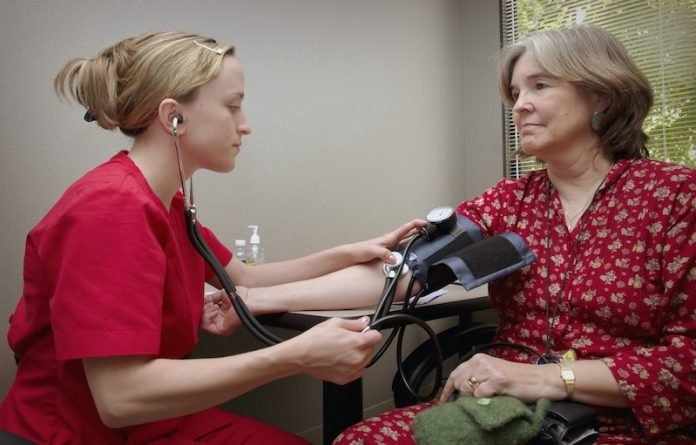
Scientists from the University of Georgia found that aggressive treatment of hypertension in stroke patients could do more harm than good in the long term.
The research is published in the American Journal of Hypertension and was conducted by Changwei Li et al.
Sixty percent of stroke patients admitted to U.S. emergency rooms have elevated blood pressure.
Many studies say that having high blood pressure at the time of stroke can lead to higher rates of death and major disability.
In the study, the team aimed to find the right balance between maintaining blood flow to the brain and reducing negative short- and long-term effects.
They looked at the link between blood pressure during a stroke and both short- and long-term health outcomes for over 4,000 Chinese stroke patients.
One group of stroke patients received extensive treatment for high blood pressure while a control group received no treatment at the time of their stroke.
The team found that patients whose systolic blood pressure was maintained at around 140 mmHg experienced fewer negative health outcomes, such as a second stroke, death or heart disease.
The researchers say that lowering blood pressure too much with medications may actually be working against the body’s protective response to maintain blood flow into the affected brain tissues.
It may be better to keep blood pressure a little higher than normal, closer to 140/90 mmHg rather than a “good” blood pressure of 120/80 mmHg, but that leaves the question of best practices a little open-ended.
If you care about high blood pressure, please read studies about a 5-minute exercise that can reduce high blood pressure, and If you have high blood pressure, eat some yogurt.
For more information about stroke, please see recent studies that drinking coffee this way can help prevent stroke, and results showing doing this after stroke is critical for long-term survival.
Copyright © 2022 Knowridge Science Report. All rights reserved.



